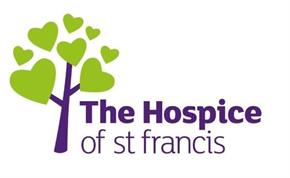
As part of end of life care month, it’s important to remember the fantastic work of the region’s hospices and charities. Working with them can help ensure the right care is given for any end of life patient.
Community Nurse, Louise Mutter, and her 11 colleagues in the Community Palliative Clinical Nurse Specialist team are responsible for delivering care at home for more than 200 people living with life-limiting illnesses in the community. Their ages can range from 20 to 90-plus, with conditions ranging from cancer and neurological diseases like multiple sclerosis, motor neurone disease, Parkinson’s disease and dementia to chronic lung disease, respiratory, renal and heart failure.
Here, Louise talks about end of life care and what her job means to her…
Hi Louise, tell us what’s your role in a nutshell?
I have a caseload of 35 patients at the moment, which involves a mixture of visits at home and seeing outpatients here at the hospice, supporting patients, families and carers over weeks, months or years through their illness or at end of life. I also do some teaching, run clinical supervision groups for nurses on the inpatient unit and support students and trainees. It’s so varied and no two days are the same.
For a day every month, I am based at The Peace Hospice in Watford – the base for the new central coordination centre for all palliative care referrals across west Hertfordshire. As of last month, the centre processes all referrals to community palliative care and can be contacted Monday- Friday to discuss palliative patients on 03332 340868.
Out of hours, the hospices are generally very willing to discuss the management of palliative care patients and there is a 24-hour advice line for West Hertfordshire patients available on 0203 826 2377. Such support lines are generally available within most areas across the East of England.
What do you enjoy most about your job?
Being able to change people’s situation for the better and enabling people to be at home if that’s where they want to be. I also enjoy being part of a lovely team where everyone gets on, is really supportive of one another and we have fun too.
Tell us how you’ve helped someone recently.
I saw a new patient recently whose wife – his primary carer - was on her knees. He was bedbound but his bed was upstairs so I arranged for it to be moved downstairs, sorted out carers to go in three times a day and offered respite sits so his wife could have a break. But the thing he wanted more than anything was a shave, which happily, was an easy fix.
What’s the most challenging aspect of your job?
The lack of resources in the community which impacts on things like getting care packages in place when people need them, to help with basic things like personal care.
What does hospice care mean to you?
Caring and treating everyone as an individual.
Published 13th April, 2017